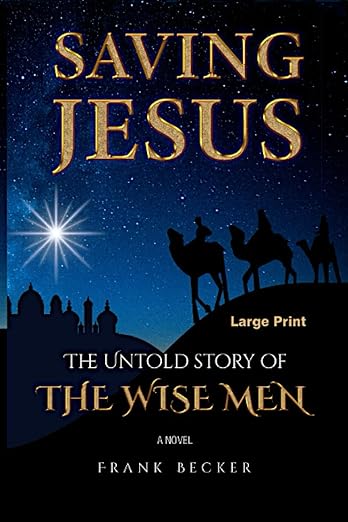Week Thirty-Six, 2024
In all toil there is profit, but mere talk tends only to poverty. Proverbs 14:23
We do it the first Monday in every September. We pause to celebrate labor. For many, Labor Day is a three-day weekend that helps us celebrate the conclusion of a great summer with a party and some tasty grilled food. But what is Labor Day, really?
There’s so much more to Labor Day than the weekend getaways and the funny (but relatable) Labor Day memes we see online. In fact, as its name implies, the holiday has historical roots in the labor movement.
In addition, work is not God’s way of punishing us. In fact, He blesses us with the ability to work, so that we can honor Him. Colossians 3:22 says, “You who are servants who are owned by someone, obey your owners. Work hard for them all the time, not just when they are watching you.”
Whether you are a student, employee or both, it is important to look at our work from a Christian perspective. After all, we spend a lot of time at school and in the workplace.
Everyone has a different attitude when it comes to work. Some have the tendency to overwork themselves, while others avoid it at all costs. However, having either of these attitudes can lead to negative consequences.
So, what does the Bible have to say about work? As Christians, it is important to align our perspective with God’s when it comes to this topic. For even when we were with you, we gave you this rule: “The one who is unwilling to work shall not eat.” Whatever you do, work at it with all your heart, as working for the Lord, not for human masters, (24) since you know that you will receive an inheritance from the Lord as a reward. It is the Lord Christ you are serving. Colossians 3:23-24
Paul was a tent maker.
In the New Testament ,
- Jesus made:132 public appearances – 122 were in the marketplace
- Of 52 parables that Jesus told – 45 had a workplace context
- Of 40 miracles in the Book of Acts – 39 were in the marketplace
Work, in its different forms, is mentioned more than 800 times in the Bible – more than all the words used to express worship, music, praise and singing combined.
Don’t minimize your daily work – it is nothing less than a Holy calling. God has you right where He wants you… Right now!
When we go all the way back to Genesis, we can see that God worked when He created the world. Therefore, when we work, we resemble Him.
Colossians 3:22 says, “You who are servants who are owned by someone, obey your owners. Work hard for them all the time, not just when they are watching you. Work for them as you would for the Lord because you honor God.” When we obey the authority figures in our life, we are ultimately serving Christ.
As sons and daughters of God, we have all been given different talents and abilities. When we use our gifts, we can experience fulfillment as we serve Christ and share His love with others.
The Bible reminds us of the importance of rest. When God created the world, He worked for six days and rested on the seventh. When we give ourselves time to rest and be in God’s Word, we can recharge for what is to come. By resting, we ensure that we will be prepared to serve Christ in whatever comes our way.
This Labor Day weekend, take this time to rest. Reflect on what the Bible says about work and ask God to give you the discipline to apply these principles to your life. Ultimately, by doing this, we can glorify Him!
Sometimes True Stories
Stepping up and standing out for Jesus means to purposely find ways to “Step up your game”. That is, purposely find ways to glorify Him. To not only shine for Him in day-to-day activities, choices and reactions, but to find ways to make Him known and seen in those activities. To not only allow others to see Christ in us in our day to day, but make Him known by what we do, how we do it, and what we say about Him when we do it.
When we step up and stand out, we rise above the status quo. We rise above expectation. We rise above what the world says we should do and be, and we shine… shine for Him.
When we step up and stand out, we’re telling the world that we do what we do for Him. And in success or in failure or anywhere in between, we stand firm and strong in Him, doing what we do to bring glory and honor and praise to Him. Marty Stubblefield
— o —
You go to IKEA and buy this really cool bookcase. You get it home and take it out of the box. You put the instructions aside and say, “No problem. I can put this puppy together.” Two hours later, you’re done and ready to stand it up. When you do, it collapses, and then you look for the instructions.
Life presents many cool opportunities to us, and they look easy and profitable for making our lives better. Without any research or advice you say, “No problem. I can make this work for me. Easy ‘peasy.'” Months later everything goes upside down, and you think it sure would be nice if I had some instructions.
There are. Life’s instruction book called the Bible. Before making any consequential decisions, consult that Book. It will tell you what you know, what to stop, what to start and what to learn. God always knows what you need.
Don’t let your life collapse. Rich Jensen
— o —
Only 10% Between 62 and 70 ‘Financially Stable’ in Retirement. With the onus for retirement saving moved from pensions to 401(k)s, millions of older Americans can’t afford to stop working, USA Today reports. Coupled with rising housing costs and medical expenses, retirement today is becoming a luxury.
Quotes You Can Use
Everyone believes in the Bible until scriptures speak against things they love doing.
Self-confidence is the first requisite to great undertakings. Samuel Johnson
Life is really simple, but we insist on making it complicated. Confucius
America right now is a perfect example of what happens to a successful business when you hire all of the wrong people. Elon Musk
Your destination will determine your life direction. Jesus was a man on a mission. He was a person with a purpose: Are you? Let me ask you: Where are you headed? Do you have a goal? Do you have a purpose? So many people live their lives with no sense of direction or purpose. Pastor Tony Walliser
A happy marriage consists of two good forgivers. Robert Quillen
The government you elect is the government you deserve. Thomas Jefferson
Help others without any reason and give without the expectation of receiving anything in return.
Don’t be afraid to give up the good to go for the great. John D. Rockefeller
The most effective way to destroy people is to deny and obliterate their own understanding of their history. George Orwell
Human history is the long terrible story of man trying to find something other than God which will make him happy. C.S. Lewis
Mistakes are always unforgiveable, if one has the courage to admit them. Bruce Lee
It is not the strength of your faith, but the object of your faith that saves you.
A lie doesn’t become truth, wrong doesn’t become right and evil doesn’t become good, just because it is accepted by a majority. Rick Warren
One of the most cowardly things ordinary people do is to shut their eyes to the facts. C.S. Lewis
I believe that one reason why the church of God at this present moment has so little influence over the world is because the world has so much influence over the church. Charles Spurgeon
_________________
Your feedback is welcome and if you want to contribute your ideas and thoughts, address all items and comments to [email protected]. © Thoughts on Life Copyright 2024



